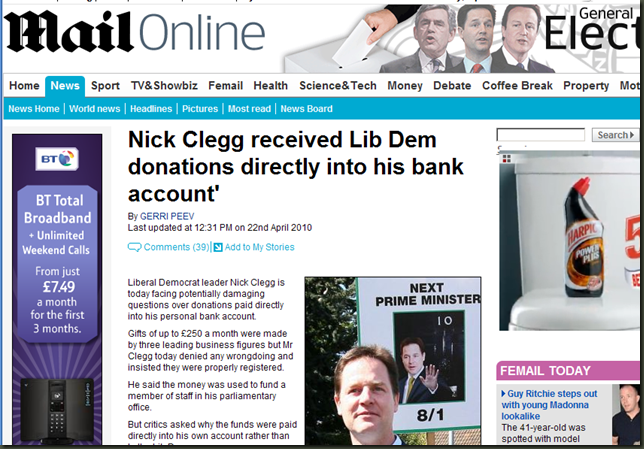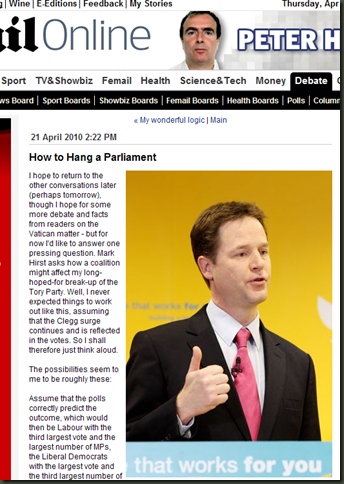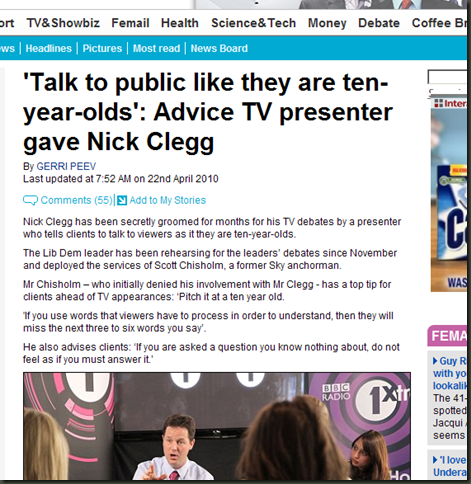I attended an event at Huddersfield looking at their and Northumberland’s experience of Summon. http://library.hud.ac.uk/blogs/summon4hn/?p=22 These are my rough notes. Take all with a pinch of salt.
The day reaffirmed my view of Summon, it is ground breaking in the Library market, and with no major stumbling blocks. They are very aware that coverage is key and seem to be adding items and publishers. It searches items that a organisation has access to (though users can tick a option to search all items in the kb, not just those they can access). They have good metadata, merging records from a number of sources, and making use of subject headings (to refine or exclude from the search).
There was general consensus that it made sense to maintain only one Knowledge-base, and therefore in this case, using 360 Link if implementing Summon. There was also general dissatisfaction for federated search tools.
To me, and I must stress this is a personal view, there are two products that I have seen which are worth future consideration: Summon and Primo. Summon’s strength is in the e-resources realm and as a resource discovery service. Primo’s strength, while offering these features/services, is as a OPAC (with My account features etc) and personalisation (tags, lists). Both products are in a stage of rapid development.
In my view, one decision to implement one of these products – which ever it is – will have a chain reaction. And I think this is an important point. Using Sussex as an example, it currently has Aquabrowser (as a Library Catalogue), Talis Prism 2 (for Borrower Account, reservations, renewals), SFX (Link Resolver) and Metalib (Federated Search).
Two example scenarios (and I stress there are other products on the market and this is just my personal immediate thoughts):
One: Let’s say Sussex first decide to replace Metalib with Summon. They would probably cancel Metalib (Summon replaces it). Probably move from SFX to 360 Linker (one Knowledge base). May then wish to review our Library Catalogue in a years time: Primo is no longer on the cards (too much cross over with Summon, which we now already have), so they either stick with Aquabrowser (but the new SaaS v3 release) or perhaps move to Prism 3 (Talis’ new-ish SaaS Catalogue). Sussex would end up with no Ex Libris products, but would potentially subscribe to several Serial Solutions products.
Two: Let’s say Sussex decide to replace Aquabrowser with Primo (which acts more like a Catalogue than AB). They cancel Aquabrowser. Primo would (in addition to being the primary OPAC) have Summon-like functionality, allowing users to search a large database of items instantly, with relevance and facets. So Summon would not be an option. Stick with SFX (Metalib would be a side feature of Primo, with a Primo-like interface). With a number of Ex Libris products they would want to keep an eye on the Ex Libris URM (next genration LMS), they would have no Serials Solutions products.
The following are some notes from the day:
Sue White from Huddersfield Library started the day, saying it is probably the best decision they have ever made.
Helle Lauridsen from Serials Solutions Europe started with a basic introduction of what it is and what their key aims were (i.e. be like google).
She emphasised that all content (different types and publishers) is treated equally.
“better metadata for better findability”. merge metadata elements. Use SerialSolutions, urichs, Medline, crossref to create the best record. ‘record becomes incredibly rich’.
She went through all the new features added in the last 12 months, including a notable size in the knowledge base. ‘dials’ to play with relevancy of different fields. Recommender service coming.
Shows a list of example publishers, included many familiar names, have just signed with Jstor. She showed increase in ‘click throughs’ for particular publishers, the biggest were for jstor and ScienceDirect. Newspapers have proved to be very popular.
There is an advanced search. There has been negative feedback ‘please bring back title/author search’.
Eileen Hiller from Huddersfield talked about product selection. She mentioned having people from across the Library and campus on the selection/implementation group, getting student feedback and talking to academics. They used good feedback in their communications (e.g. in the student newspaper and their blog). Student feedback questionnaire has been useful.
Dave Pattern talks about the history of e-resource access at Huddersfield, started with a online word document and then a onenote version. Metalib was slow, and they found more students using Google Scholar than metalib.

They started with a blank sheet of paper and as a group thrashed out their ideal product, without knowing about Summon. First class search engine, ‘one stop shop’, improved systems management, etc. Invited a number of suppliers in, showed them the vision and asked them to present their product against it, Huddersfield rated each one against The Vision. Report to Library Management Group. Summon was the clear fit.
Implementation: Starts off with a US conference call. MARC21 mapping spreadsheet, they went with defaults. they add a unique id to the 999|a field.
Be relistic with early implementation, e.g. lib cat and repository are only two local databases. Be aware of when you LMS deletes things flagged for deletion. Huddersfield had early issues with this.
Do you want your whole catalogue on Summon? ebook/ejournal records etc.
Summon originally screenscraped for holdings/availability (aquabrowser does this for Sussex) could bring the traditional catalogue to its knees.
Moving to 360 Link makes you life much easier if moving to Summon, only one Knowledgebase to maintain.
They asked Elsevier to create a custom file for their sciencedirect holdings to upload to 360.
Huddersfield found activating journals in 360 a quick process.
360 API more open than Summon API. for customers only. You can basically build your own interface. Virginia using it to produce a mobile friendly version of their catalogue. Hud used it to identify problem MARC records.
94% of Huddersfield subscribed journals are on Summon (No agreement with the following: BSP 80%, Sciencedirect, Jstor… Westlaw/LexisNexis 55%). They now have a agreement with LexisNexis and Jstor. In discussion with Elsevier. They manage to have this level of coverage for these reources by using other sources for the data (e.g. publishers for Business source premier and A&I databases for ScienceDirect).
Dummy journal records for journal titles (print and e) so that they are easily found on Summon. See this example.
Can recommend specific resources (‘you might be interested in ACM Digital Library’), can be useful for subjects like Law.
Summon at Hudderfield now has 60 million items (see left hand side for breakdown), indexed. Judging by this Summon seems to have 575 million items indexed in total.
Survey results: Users found screens easy to understand. many (43%) refined their results. Dave thinks that now Google has facets on the left may increase facet usage. 82% for results were relevant to their research topics.
They will go live in July. Currently working on training materials and staff training. Considering adding archives and Special Collections in the future.
Annette Coates, Digital Services Manager, Northumbria Uni.

She gave a history of e-resource provision, 2005 onwards: webfeat (they brand it nora, which they are keeping for Summon). ‘We have the same issues with federated search that everyone else has’. Both Northumbria and Huddersfield are keeping a seperate A-Z list for e-resources (N are using libguides, like Sussex).
User Evaluation: is it improving the user’s search experience? how can we improve it futher? NORA user survey. Timing important, Getting people involved, Incentives, Capturing the session. They will use all the user feedback in a number of ways, ‘triangulate to ensure depth’, use good quotes as a marketing tool (including to lib staff), feedback good/bad to Serials Solutions, use it to improve the way they show it to others…

Q&A
Focus groups, guidance?
very little guidance in focus group, and let them play with it
What is the position regarding authentication?
N use citrix. Will be Shibolising their 360link.
H channeling as much as possible through ezproxy. don’t have shib. promote usage though usage portal, which authenticates them.
No shibboleth integration at the moment.
(discussion about how summon may mean you can stop trying to add journal records, and can raise lots of questions… should summon be the interface on your catalogue kiosks).
You can send list of ISSNs to Serial Solutions to see matches, to find out what your coverage would be.
There was a very vague indication that OPAC integration may be on the cards for Summon. This is an important thing IMO.
Number of comments about Library staff being far more critical than users.
Summon ingesting stuff (MARC) from LMS 4 times a day. Using DLF standard for getting holdings data from LMS. (this is a good thing). Huddersfield wrote the DLF protocol code.
Q: Are SerialSolutions (proquest) struggling to get metadata from their direct competitors?
A: SS: Ebsco the main one, but we go direct to publishers. And for Elsevier, able to index it from elsewhere (and in talks with them).
Q: lexis and westlaw, where only 50% coverage, how do students know to go elsewhere (i.e. direct to the resource)?
A: for law students point them to e-resource pages (wiki) as well as summon to promote direct access to them. also (and perhaps more importantly) will have recommender which can recommend lexis/westlaw for law searches.
Q: can you search the whole summon kb, not just those things we subscribe to?
yes
Q: Are there personalisation options? (saving lists, items, marking records)
May come in the future, summon are thinking about it.
















